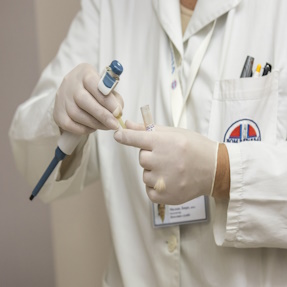
What is a urologist oncologist?
As a urologist oncologist, I often playfully describe myself as a plumber due to the nature of my work. However, I take my job seriously and am dedicated to helping men discover and address any issues related to their genitourinary health.
What types of cancers do urologic oncologists treat?
Although it may be tempting to make light of the situation, the reality is that over 300,000 individuals in the United States are diagnosed with a urologic cancer each year, including cancers of the prostate, bladder, kidney, penis, and testicles. Prostate cancer is the second most common cancer among men in the United States. These cancers are among the top 10 most commonly diagnosed in the country.
Qualifications of urologic oncologists
If you are suffering from cancers affecting your urinary health, it is advisable to seek the help of a urologic oncologist for the best care. These professionals specialize in treating men and women with cancer in the urinary system or male reproductive organs. They are well-trained in modern surgical techniques, such as laparoscopic and robotic surgeries, to effectively treat urologic cancers. Additionally, urologic oncologists have advanced training in creating treatment plans that involve chemotherapy, radiation, and immunotherapy for cancer patients.
Urologist oncologists work in various settings, from hospitals, clinics, and urology centers.
Do urologists and urologic oncologists treat the same medical conditions?
There is a distinction between a general urologist and a urologic oncologist. A general urologist, who has completed medical school and residency, can address all urinary tract diseases in both males and females. However, they do not have expertise in treating cancers that affect the urinary system or male reproductive organs.
Medical professionals who specialize in urologic oncology focus solely on cancers affecting the urinary system and male reproductive organs. These highly trained experts provide comprehensive care from initial diagnosis through treatment and, if necessary, end-stage disease management. Their ultimate objective is to enhance the survival rate of patients with urinary cancer throughout their cancer journey.
Benefits of urologic oncologists
Urological cancer can affect your urinary tract and male reproductive system, causing feelings of vulnerability and concern about fertility, sexual health, and daily living. This is no time to deal with medical professionals with little training in urological cancers. You will want the very best to treat cancer affecting your urological health and a urologic oncologist is the physician you want.
The positive aspect of consulting a urologic oncologist is that they collaborate with your cancer care team to minimize side effects, improve your sexual function and elevate your overall quality of life.
Dr. David Samadi is the Director of Men’s Health and Urologic Oncology at St. Francis Hospital in Long Island. He’s a renowned and highly successful board certified Urologic Oncologist Expert and Robotic Surgeon in New York City, regarded as one of the leading prostate surgeons in the U.S., with a vast expertise in prostate cancer treatment and Robotic-Assisted Laparoscopic Prostatectomy. Dr. Samadi is a medical contributor to NewsMax TV and is also the author of The Ultimate MANual, Dr. Samadi’s Guide to Men’s Health and Wellness, available online both on Amazon and Barnes & Noble. Visit Dr. Samadi’s websites at robotic oncology and prostate cancer 911.
